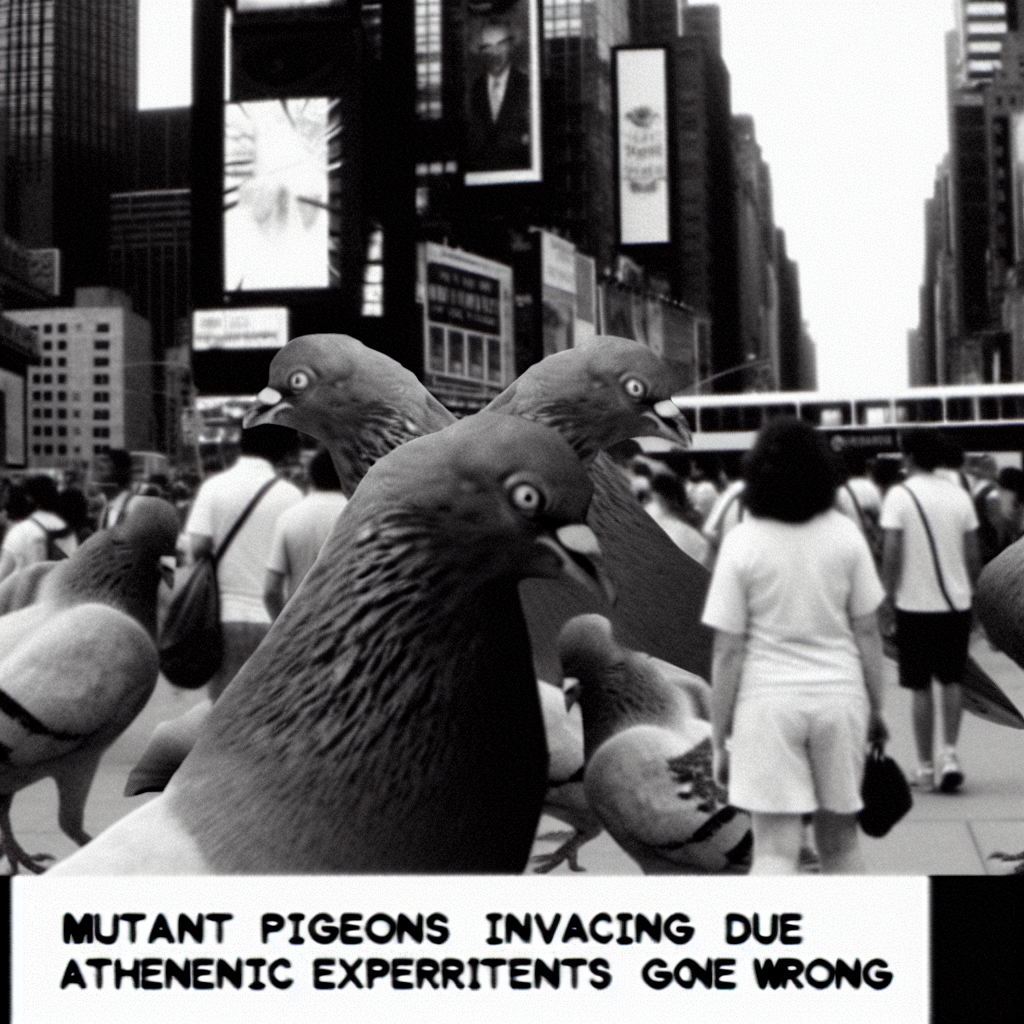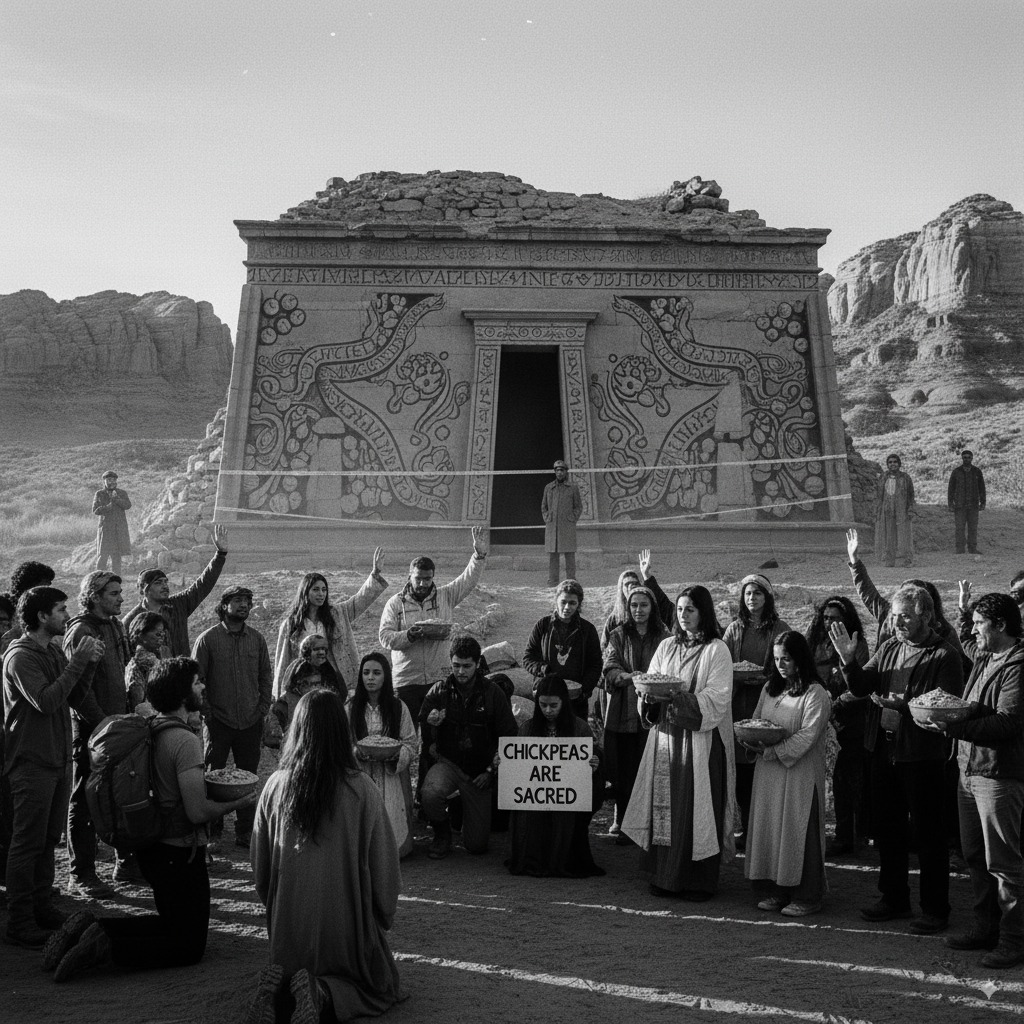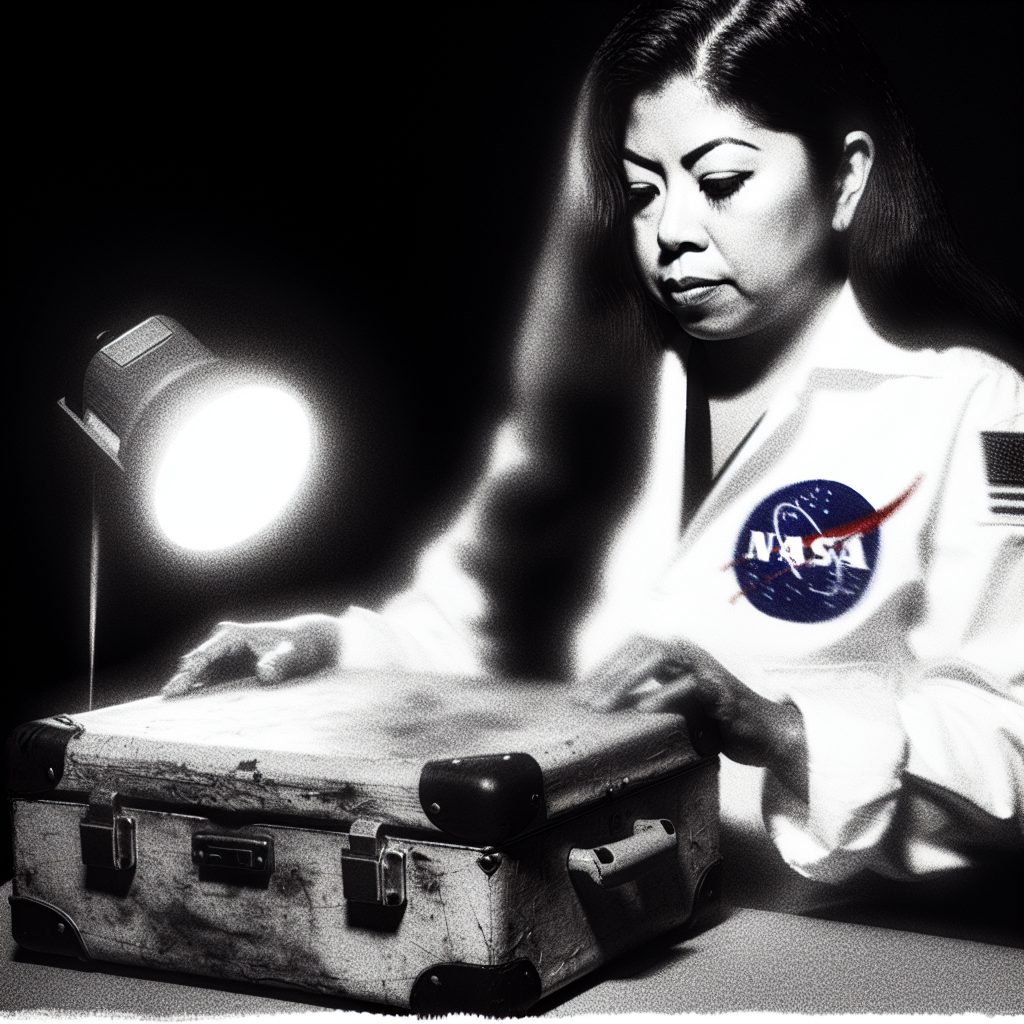VEGANS DISCOVER ANCIENT TEMPLE DEDICATED TO HUMMUS
Chickpeas declared sacred in emotional ceremony.
SEDONA, ARIZONA – A group of vegan archaeologists has unearthed what they claim is an ancient temple dedicated entirely to the worship of hummus, sending shockwaves through both the scientific community and the plant-based food movement worldwide.
The discovery, made deep within a previously unexplored cave system in the mystical red rocks of Sedona, has revealed intricate stone carvings depicting chickpeas being transformed into the beloved Middle Eastern dip through what appears to be sacred ritual. The temple, estimated to be over 3,000 years old, features elaborate murals showing robed figures offering bowls of hummus to celestial beings while chanting around massive grinding stones.
Dr. Moonbeam Sproutworth, a self-proclaimed “spiritual archaeologist” who led the expedition, believes the find proves that ancient civilizations understood the divine nature of legumes long before modern science discovered their protein content.
“The moment we entered the sacred chamber, we could feel the energy of the chickpeas calling to us,” Sproutworth explained, her eyes glistening with tears. “The ancients knew something we’re only now remembering – that hummus isn’t just food, it’s a direct connection to the cosmic consciousness of plant-based nutrition.”
The temple’s central altar features a perfectly preserved stone bowl, still containing what forensic analysis suggests are the desiccated remains of ancient hummus. Surrounding the altar, hieroglyphic-style symbols appear to detail the sacred recipe, including what researchers believe are instructions for achieving the perfect tahini-to-lemon ratio.
But perhaps most shocking of all is the discovery of what appears to be an ancient vegan dietary guide carved into the temple walls, predating known written language by millennia. The guide explicitly forbids the consumption of animal products and elevates the humble chickpea to divine status, referring to it as “the golden orb of eternal sustenance.”
Local Native American tribes have remained suspiciously silent about the discovery, leading some to speculate that they’ve been secretly protecting knowledge of the hummus temple for generations. Chief Robert Ironfeather of the nearby Yavapai tribe declined to comment, but witnesses report seeing him quickly walking away while muttering something about “tahini secrets.”
The find has already triggered an emotional ceremony among the vegan community, where chickpeas were officially declared sacred. Over 500 plant-based diet enthusiasts gathered at the temple site, bringing offerings of various hummus flavors while chanting ancient-sounding words that sounded remarkably similar to ingredient lists from popular hummus brands.
Dr. Quinoa Fieldstone, a professor of Mystical Nutrition at the Berkeley Institute of Alternative Food Sciences, believes the discovery validates years of research into the spiritual properties of legumes.
“This temple provides undeniable proof that our ancestors understood the metaphysical connection between consciousness and chickpeas,” Fieldstone declared while dramatically gesturing toward the cave entrance. “The positioning of the grinding stones aligns perfectly with Venus during hummus season, creating a vortex of plant-based energy that mainstream archaeology refuses to acknowledge.”
Government officials have cordoned off the area, claiming they need to conduct “routine geological surveys,” but insiders suggest federal agents are actually confiscating evidence to prevent the public from learning the truth about ancient vegan civilizations. Mysterious black SUVs have been spotted near the site, and several witnesses report seeing men in dark suits carrying what appeared to be industrial-sized containers of tahini.
The discovery has sparked a heated debate within academic circles, with traditional archaeologists dismissing the find as elaborate performance art, while vegan activists are already planning pilgrimages to what they’re calling “The Sacred Chickpea Sanctuary.”
Construction has begun on a visitor center featuring a gift shop specializing in “temple-blessed” hummus varieties, with proceeds going toward funding further excavations in the area. Early reports suggest additional legume-worship sites may exist throughout the Southwest, hidden for centuries by a conspiracy of silence that reaches the highest levels of the agricultural industry.
The characters and events depicted in this story are entirely fictitious. Any similarity to real persons, living or dead, or to actual events is unintentional and purely coincidental.









